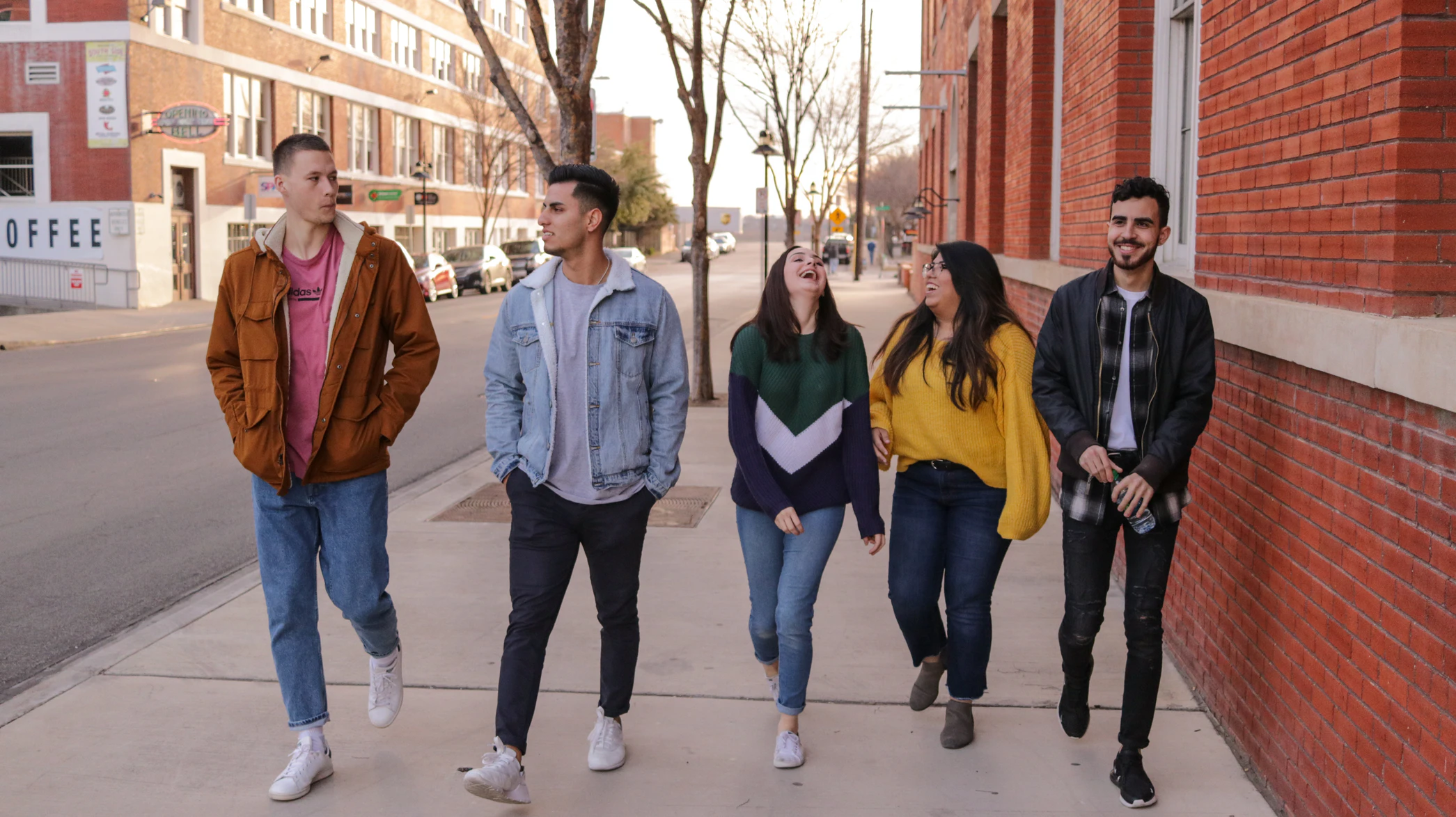By Michael V. Rodriguez. Reprinted from Huffington Post.
At 6 am as coffee attempts to dominate sleepiness I find a fitting state of mind to recall last night’s Living Room Conversation about the status of the American Dream in the Bay Area.
In recent months Berkeley has become the center of a free speech debate characterized by hate speech enticing violent protests. Unfortunately, the prevalent spirit of the San Francisco Bay Area has been misrepresented. The identities of violent and hateful extremists in Berkeley and invasive techies wandering up from Silicon Valley overshadow the faces and thoughts of long time residents. In my experience, most residents of the Bay Area live moderate lives in an attempt to remain rooted in one of the most competitive housing markets in the world. The homeless population is large and people do their best to be compassionate to those less fortunate. Skin colors, dialects, and cultural customs are perhaps more diverse in the Bay Area than anywhere else in the world.
My conversation group reflected the general population I have always known in the Bay Area: a former school teacher, artists, retail and restaurant workers, and conservative and liberal students attending UC Berkeley. All participants attended public schools in the Bay Area, aside from one participant who spent some of her younger years growing up in Germany. This woman commented that German citizens seemed more fulfilled by their role in the family, whereas Americans seemed more pleased by individual success and the accumulation of material wealth. Thus, the initial crux of our conversation about the American Dream centered on family values as opposed to triumph of the rugged individual.
In our conversation, the value of family was juxtaposed with the value of individualism. Rags to riches, a common trope in Hollywood and political campaigns alike, seems to be the dream that America wants us to believe for both our family and for ourselves. Rags to riches is proposed as the cure all for individual and familial woes. However, as one astute participant acknowledged, America’s first families have maintained wealth in a small sector of society by way of inheritance. This distribution of wealth, where few people have and keep the most money while the rest are left to hustle for scraps, is evidence against the American Dream of rags to riches, for how can there be class mobility when one class of society is off-limits? The dream that is sold to us in campaign slogans and movie trailers, the dream that we are entitled to all that America has to offer if we work hard enough, rarely comes true. Further, it is nearly impossible for all families to thrive when there are limited opportunities for the least well off to rise above the poverty that they were born into.
So if the American Dream of rags to riches is unattainable, then what else could the dream be about?
Social cohesion was our next guess. One of the students proposed that the absence of a unifying force in the social landscape is the cause of political unrest and division in our nation. The student suggested that the nation was hampered by a lack of faith. We proposed universal ideals like freedom and democracy, but a few participants thought that these abstract concepts were too beaten down by their use over time to ever be universally useful and meaningful for everyone in the country. Our nation was initially founded under God, but the meaning is so diverse. There are so many religions in this country founded on religious freedom, but this diversity seems to be a source of hate, not cohesion.
With rags to riches and faith disqualified, we wondered just what the payoff for being American is. As Americans what’s the best we can hope for? What can we reasonably dream of?
“You can walk down to the store and buy a hamburger for a dollar,” posited one of the students, which is true and there are drinking fountains constantly running in Portland. Access to what you need to subsist is perhaps the most American reality, but the risk necessary for the reward is different for every American depending on their social position. The risk of walking to the store in Southside Chicago is different than walking to the store in North Berkeley. Risks are different based on wealth, race, gender, sexual orientation, language capacity, family size, city, ability, religion, political beliefs, strength, intellect, intuition; the list of factors to account for when calculating risk is literally endless, but there certainly is a risk involved in trying to fulfill your purpose while living in America. Furthermore, the risk you take is dependent upon a dizzying amount of social factors.
The American Dream should be to provide safety for the individual pursuing their own dream in America. While each American has their own dream, America as a whole should dream of providing a safe space for all to express themselves and contribute to the 241 year old debate about government, economy, and policy. America is the third most populated nation in the world with about 325 million people, so to get the entire nation on the same page might be a bit of a pipe dream, but in the San Francisco Bay Area we should not be afraid to express ourselves. We should listen to those who speak their thoughts, and we should try to communicate with each other in order to navigate the issues that divide us so we can recognize the dream that unites us.

